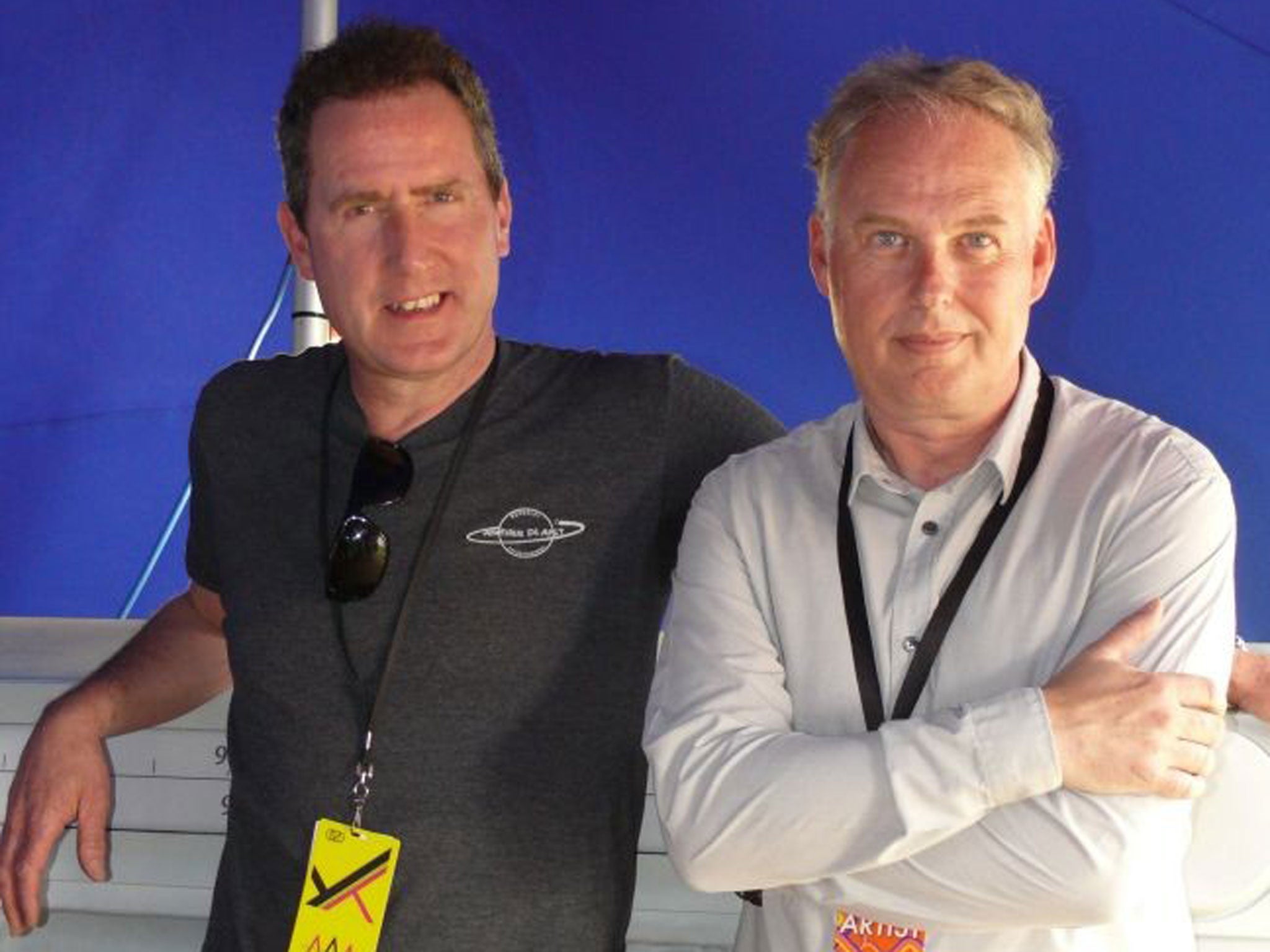Our friends electric: Orchestral Manoeuvres in the Dark
Synth-pop pioneers OMD were one of most innovative bands of the Eighties. They're still on a quest for originality, they tell Elisa Bray

“It's a good time to be OMD,” states Paul Humphreys, of Orchestral Manoeuvres in the Dark. Synth-pop remains in fashion and Kraftwerk – who inspired OMD's very genesis – are one of the most talked about bands of the year.
When we meet to discuss their new album, English Electric, Humphreys and Andy McCluskey's excitement at watching Kraftwerk in February is palpable – it reduced the 53-year-olds to the excitable schoolboys who met aged seven in Merseyside and discovered a mutual love of electronic pop. “As the melody to 'Airwaves' started, I grabbed Paul by the lapels and we were jumping”, exclaims McCluskey. “Radio-Activity was our Bible. To two kids from a working class background who had almost nothing, here was a record that we loved, and we were like 'they've made a record using Geiger counters, chopped-up vocals and interference from radios. WE can do that!'”
So they did. That the pair of 16-year-olds had only technology geek Humphreys' deconstructed radios and an organ, compared to the wealthier Kraftwerk's cutting-edge equipment, allowed them to forge a sound of their own. Tony Wilson, who released their debut single, “Electricity”, told them: “What you guys do is the future of pop music” and, with teenage defiance, they replied: “We're experimental!' ”It was basically a geeky art project that accidentally turned into a pop group,“ reflects McCluskey. ”We used to find ourselves at Top of the Pops, just about to play our new Top 5 record, casting a glance at each other like 'how the hell did this happen?'“ McCluskey's forthrightness and sharp wit is the foil to Humphreys' gentle pensiveness. ”We always had this joke that two Pauls wouldn't get anything done and two Andys would kill each other,“ quips McCluskey.
They parted ways in 1989 (Humphreys formed The Listening Pool, McCluskey retained OMD and founded Atomic Kitten). Their reuniting for a tour a decade later helpfully coincided with the boom of synth-pop acts such as La Roux and The xx who all cited OMD as an influence. Soon they tired of playing their old hits, so they returned to their replenished well of ideas and wrote History of Modern. The risk paid off: their first album in 14 years sold far more than they'd anticipated. But it wasn't about the sales. “In some ways we were learning how to work with each other again… It was more 'now we've got the engine running, maybe we can go a bit further down this road –what's down there?'”
For English Electric, they fixed practicalities: instead of sending tracks across the internet, Humphreys left his London home for writing sessions at McCluskey's Liverpool studio, returning to how their early albums were created. With the nagging instinct that History of Modern lacked the intellectual concepts that have underpinned all their work, their follow-up pushes them further.
“We have a problem that most other bands don't,” says McCluskey. “Good songs aren't enough. There has to be an intellectual and conceptual element. So we've now dared to have another go and push ourselves forward.”
English Electric is brimming with concepts and typically obscure found sounds. On Our System you'll hear “the sound” of the voyage of a space craft, sourced from the Nasa website. The album reflects on the past, the postwar utopian vision of a future in which science would solve all of humanity's problems. “It didn't quite turn out that way,” ponders McCluskey. “We're now looking back at the visions of the future that we grew up with. This utopian vision is somewhat dystopian, and that aligned with our natural sense of melancholy.”
The melancholy streak runs through all of OMD's body of work. “It comes down to a juxtaposition of machinery and humanity, it creates a melancholy tension which accidentally became our sound,” he suggests. “Or maybe we're just a pair of miserable bastards.”
That melancholy was enhanced by McCluskey's recent divorce that saw his wife return to her native California two years ago with the two youngest children. “I don't see my children very often so I'm sure that may have informed the feel of the record. It probably informed the lyrics.” On the plus side, it meant that the keen art collector could surround himself with all the artwork he wanted. “I didn't have her saying, 'I don't like that on the wall' so I went completely bonkers, and started buying strangely monochromatic dark Northern seas that have a lot of melancholy.”
Enjoy unlimited access to 70 million ad-free songs and podcasts with Amazon Music
Sign up now for a 30-day free trial
Enjoy unlimited access to 70 million ad-free songs and podcasts with Amazon Music
Sign up now for a 30-day free trial
“There's definitely a theme to your art-buying”, Humphreys chips in. The wistful song “Night Café” was inspired by Edward Hopper's evocation of melancholic loneliness, Nighthawks.
OMD are still on a quest to move forward, exploring new concepts and manipulating obscure sounds into melodic pop songs. “In some ways we've come full circle. We want to go back on a journey that we started 35 years ago with the same freedom that we had for the first four albums when nobody told us what to do and we were fearless. Then we ended up playing the game. This time we're not going to allow ourselves to fall into that trap.” Listening to English Electric today, I believe him.
'English Electric' is out on Monday
Subscribe to Independent Premium to bookmark this article
Want to bookmark your favourite articles and stories to read or reference later? Start your Independent Premium subscription today.

Join our commenting forum
Join thought-provoking conversations, follow other Independent readers and see their replies
Comments